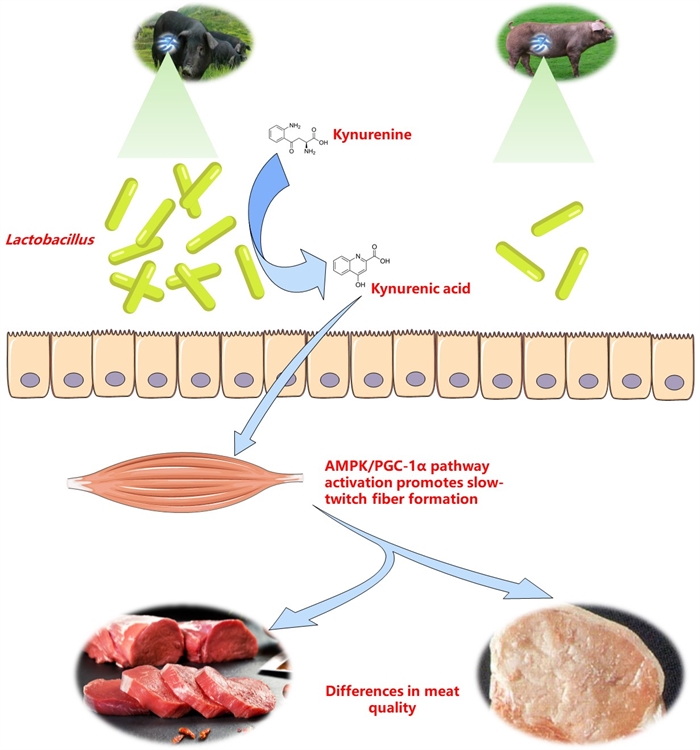A research team led by Prof. KONG Xiangfeng from the Institute of Subtropical Agriculture of the Chinese Academy of Sciences has revealed a novel strategy to enhance pork quality by modulating gut microbiota, potentially bridging the gap between the high meat yield of commercial pigs and the premium meat quality of Chinese indigenous pigs.
Based on two recent studies comparing the pork quality of Chinese indigenous with commercial pig breeds, the researchers revealed that gut microbiota plays a pivotal role in shaping muscle characteristics through the gut-muscle axis.
The rfindings show that Chinese indigenous pig breeds like Taoyuan black (TB) pigs and Xiangcun black (TB) pigs developed a greater proportion of endurance-type (slow-twitch) muscle fibers-key contributors to tenderness and flavor-due to their distinctive gut microbial profiles.
These studies were published in Food & Function and npj Biofilms and Microbiomes.
One key discovery was the identification of Lactobacillus bacteria in the colon as one of the potential regulators. Lactobacillus in the colon convert dietary tryptophan into kynurenic acid, (gut bacteria-derived metabolite which activates the AMPK/PGC-1α signaling pathway in muscle tissue. This cascade essentially reprograms muscle fibers toward the slow-twitch type enhancing meat quality traits like such as water-holding capacity and intramuscular fat content.
Notably, fecal microbiota transplantation from Chinese indigenous pigs transferred these traits to mice, proving direct evidence that gut microbiota directly influences muscle biology.

Gut microbiota identified as key to enhancing commercial pork quality (Image by SONG Bo)






